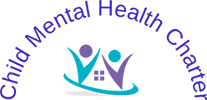This useful guide from the Universities of Reading and Oxford is designed to help parents, carers and those who work with children and young people deal with some of the attendant anxieties that are affecting their mental health.
The source material is ‘age appropriate’ – it does not confuse children’s needs with those of young people. Helen Clark, Campaign Manager for the Child Mental Health Charter said:
It is too easy to lump children and young people together when talking about mental health; in fact as those who have prepared this guide are well aware that there are many differences to be borne in mind.
Here I have compiled a series of links that may be useful for those who are specifically dealing with children. I am extremely grateful to the researchers from Oxford and Reading Universities who have pulled this information together.
It remains a great shame that, nearly six months into this devastating pandemic, our Government seems to be all but oblivious to the fact that children’s mental health may have been severely compromised and in some cases, permanently affected by these totally unforeseeable circumstances.’
Helen Clark, Campaign Manager
FOR YOUNGER CHILDREN
Nanogirl Live has produced some accessible videos explaining COVID-19 and some basic steps to keep healthy such as washing hands/sneezing and coughing into elbows:
This comic strip provides a visual explanation of the COVID-19 outbreak and what we can do to stop its spread:
FOR SCHOOL-AGED CHILDREN
BBC Newsround as a COVID-19 website featuring a range of stories and videos on the outbreak:
https://www.bbc.co.uk/newsround/51204456
These include:
‘Facts and Myth-busting’
https://www.bbc.co.uk/newsround/51387017
Newsround advice on how to manage worries about COVID-19
https://www.bbc.co.uk/newsround/51911025
TALKING TO CHILDREN ABOUT COVID-19
UNICEF’S 8 quick tips for talking to children about COVID-19
https://www.unicef.org/coronavirus/how-talk-your-child-about-coronavirus-covid-19
The Flourishing Families Clinic (at the University of Sussex and Sussex Partnership NHS Trust) ahs produced some tips on how to talk to a child about their Covid-19 anxieties:
https://www.flourishingfamiliesclinic.nhs.uk/How%20to%20Talk%20to%20Children%20about%20COVID.pdf
The National Association of School Psychologists have created a COVID-19 Resource Centre containing advice for families and those working with children, including a parent resource on talking to children about COVID-19:
Wandering Minds of a Psychologist explains why it is important to talk to children about COVID-19 and provides examples of what to say and what questions to ask:
The Guardian has published advice on how to talk to a child about COVID-19 and what to cover:
TO WATCH OR LISTEN TO
BBC Radio 4’s Woman’s Hour covered a discussion about how to talk to children about COVID-19
https://www.bbc.co.uk/sounds/play/p085rjkm
This ‘vimeo’ (a video hosted on the Vimeo site) provides tips and advice about how to talk to your child about natural disasters and news events:
Dr Ehrenreich-May, a child psychologist has produced a vimeo outlining three tips for talking to your child about COVID-19.
The Child’s Mind Institute has published an advice video for talking to children about COVID-19:
https://childmind.org/article/talking-to-kids-about-the-coronavirus/
RESOURCES FOR TEACHERS AND OTHERS WORKING WITH CHILDREN
The National Association of School Psychologists have created a COVID-19 Resource Centre containing information and advice for those working with children including tips and advice for schools and educators:
UNICEF has published advice for teachers:
https://www.unicef.org/coronavirus/how-teachers-can-talk-children-about-coronavirus-disease-covid-19
The Centre for Disease Control has produced some ‘general principles’ for parents, teachers and any other professionals working with children:
https://www.cdc.gov/coronavirus/2019-ncov/community/schools-childcare/talking-with-children.html
